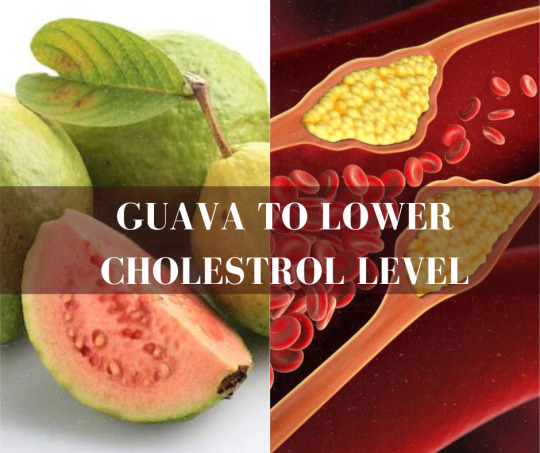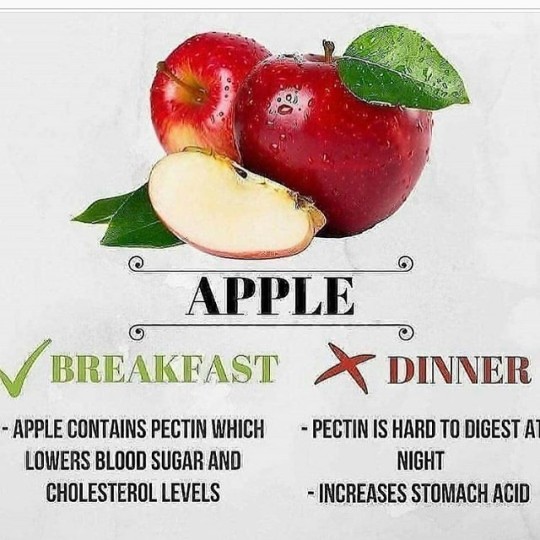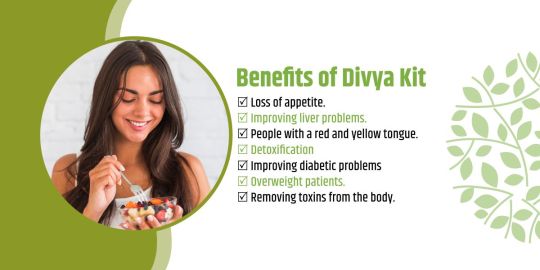#lowering cholestrol
Explore tagged Tumblr posts
Text
If you're considering hosting an event, consider hiring Corban Catering for the best vegetarian platter in Chatsworth, California.

Chatsworth, located in Ventura County, California, is a serene neighborhood. This city, situated in Simi Valley, has a community of around 40,000 residents. It boasts a rich history and is recognized for its rock art and Native American heritage. Chatsworth is celebrated for its tranquil atmosphere, small gatherings, and beautiful parks. The locals are peace-loving and cheerful, taking great pleasure in planning small-scale events in their community. Additionally, residents of Chatsworth are enthusiastic about food and enjoy exploring various cuisines. As a result, Mediterranean cuisine is becoming increasingly popular in the area. If you're also looking to host a small event and need exceptional catering options, Corban Catering is the way to go. They offer an impressive array of delicious dishes and feature the best vegetarian platter in Chatsworth, California. As vegetarianism gains momentum due to its numerous benefits, let's examine some advantages of eating vegetarian food:
Here are the benefits of consuming vegetarian dishes, including the best vegetarian platter in Chatsworth, California.
Eating vegetarian options like Baba Ghanouj comes with several health advantages, outlined below:
● Boosts overall health: Maintaining a healthy vegetarian diet is associated with lower rates of heart disease, cancer, high blood pressure, and diabetes, ultimately enhancing your overall health.
● Helps in weight management: Recent research indicates that plant-based diets tend to be lower in calories and saturated fats, aiding in weight management.
● Promotes blood circulation and reduces cholestrol levels: Corban Catering offers the best beet hummus, which promotes better blood circulation and lowers bad cholesterol levels.
● Improves gut health: The best vegetarian platter in Chatsworth, California offers a variety of delectable dishes, that are rich in fiber, employing top-quality fruits, legumes, and whole grains that enhance gut health and facilitate regular bowel movements.
● Leaves a positive impact on the environment: Opting for vegetarian food also positively impacts the environment by reducing carbon footprints, conserving resources, and decreasing pollution. It also benefits animal welfare and promotes food equity.
Choose Corban Catering for your events to enjoy the finest vegetarian platter in Chatsworth, California.
Corban Catering is a startup dedicated to providing the best vegetarian platter in Chatsworth, California. They cater to production studios, individual occasions, and large gatherings alike. The menu at Corban Catering features a diverse array of options, including breakfast spreads, gourmet lunches, and craft services, and they strive to deliver a culinary experience that surpasses your expectations and satisfies your guests. Therefore, if you're planning an event in Chatsworth, California, consider Corban Catering for all your food needs.
For more information about Corban Catering, feel free to contact (360)-961-7178 or visit their website at https://corbancatering.net/. You can also connect with them on social media.
0 notes
Text
Natural Support for Cholesterol Health
In today’s fast-paced world, maintaining healthy cholesterol levels is more important than ever. With heart disease being one of the leading causes of death globally, many individuals are turning to alternative options such as a Cholestrol Management supplement to support their overall well-being. As awareness grows about the long-term benefits of natural health solutions, more people are exploring the convenience of purchasing a natural supplement online.
Cholesterol plays a vital role in our bodies, aiding in hormone production and cell function. However, when levels become too high—particularly LDL (low-density lipoprotein) cholesterol—it can lead to plaque buildup in arteries, increasing the risk of heart attack and stroke. While lifestyle changes such as a healthier diet and increased physical activity are essential, many individuals are looking for added support in the form of a cholesterol management supplement.
One major advantage of using a natural supplement online is the accessibility to a wide range of quality products. With just a few clicks, customers can explore options specifically formulated to help regulate cholesterol levels. Many of these supplements contain plant-based ingredients such as red yeast rice, garlic extract, or omega-3 fatty acids, which have been studied for their potential to support heart health and lower bad cholesterol.
The best cholesterol supplements are those that combine traditional knowledge with scientific backing. For example, some formulas use ingredients like phytosterols, which are plant-based compounds that can help block the absorption of cholesterol in the intestine. Others include antioxidants that reduce inflammation and oxidative stress—both of which contribute to heart-related issues.
Before selecting any supplement, it is essential to review the ingredient list and verify that the product has been tested for purity and effectiveness. A trustworthy source like Getpurevitamins.com offers detailed product descriptions and transparent labeling, so customers know exactly what they’re putting into their bodies.
It’s also important to note that while supplements can offer support, they should not be viewed as a quick fix or a substitute for medical treatment. Individuals with high cholesterol should consult with a healthcare provider before starting any new regimen, especially if they are already on prescription medications. A cholesterol management supplement can work alongside other health practices to help maintain balanced lipid levels, but professional guidance ensures safe and effective results.
Another benefit of purchasing a natural supplement online is the ability to read reviews from other users. Customer feedback provides valuable insight into how well a product works and whether it meets the advertised claims. It also helps identify any potential side effects or interactions that may not be listed on the label. This level of transparency allows consumers to make informed decisions that are aligned with their health goals.
When choosing a supplement, consistency is key. Unlike pharmaceutical drugs, natural supplements may take longer to show noticeable results, as they work gently with the body’s systems. Most users report best results after 8 to 12 weeks of regular use, paired with a healthy lifestyle. Drinking plenty of water, eating fiber-rich foods, and limiting saturated fat intake can amplify the effects of any heart health supplement.
One final consideration is the importance of purchasing from reputable sources. Counterfeit or low-quality products can do more harm than good. That’s why many health-conscious consumers trust established platforms like Getpurevitamins.com to find reliable, effective, and natural options backed by scientific research.
0 notes
Text
Price: [price_with_discount] (as of [price_update_date] - Details) [ad_1] From the brand King Cha - Imperial Tea blends Our specialty is our hand-crafted special aromatic blends right from our humble home to yours. No intermediaries. Why should tea be just tea? We are dedicated to creating a brand that is authentic, ethical, and organic. Our ingredients list is naturally free of gluten, dairy corn, nuts, sugar and animal products. No additives. No preservatives. No artificial colours. Our specialty is our hand-crafted special aromatic blends right from our humble home to yours. No intermediaries. “The spirit of the tea beverage is one of peace, comfort and refinement.” Buy Best sourced Assam Tea Why we love what we do? It gives us immense pleasure to share the best of our culture in the form of teas and spices which are naturally grown and hand crafted. What makes our products unique? We source our tea from Assam from cooperatives with strong social and environmental standards. We choose from the finest full-leaf teas and use only 100% natural ingredients. We are a brand that is authentic, ethical, and organic. We handcraft our blends with precision and accuracy. Are our products high quality? We bring the best of Jodhpur’s prized spices and create teas that are flavourful and authentic. IMMENSE HEALTH BENEFITS : High in antioxidants Hibiscus Strawberry mix herbal tea is an absolute health drink. It promotes weight loss and reduces cancerous growth of cells and bacterias. It helps in controlling Cholestrol and promotes heart and liver health. SUMMER RELIEF: Cold concoction of Hibiscus and Strawberry Tea makes the perfect cool drink to beat the summer. Play around with adding a pinch of lemon, honey and ice. It has a tarty flavor similar to that of cranberries and can be enjoyed both hot and cold. PROMOTES WEIGHT LOSS: Hibiscus tea contains anthocyanins, which have anti-inflammatory effects. It helps in regulating high blood pressure and lowering it to normal levels. The vitamin C promotes immunity and good health. MONITORS HORMONAL HEALTH: Hibiscus flower tea reduces the symptoms of hormonal shifts in females, such as PMS and menopause. It regulates hormonal imbalances and soothes overall mood and health. NATURALLY GLOWING SKIN: This Vitamin C rich blend promotes a natural skin health, adding a natural collagen for a glowing young skin. 100% NATURAL BLEND: Handcrafted and hand picked with 100% natural elements in their natural state. King Cha products contain no preservatives, no artificial flavours or no sugar content. The leaves are hand picked and naturally grown. BREWING STORY: For the perfect cup we recommend that you use one Hibiscus Strawberry Tea bag. Add freshly boiled water and steep for 5 minutes. Stir using a spoon and enjoy! Our Hibiscus Strawberry Tea should be served without milk and can be sweetened with sugar or honey.
If you like it cold, preserve this warmed mix and refrigerate for 2-3 hours. This prepares a concotion for iced tea. Add more water and serve with ice. [ad_2]
0 notes
Text
1st september. I decide to wait another 4 months before making any decision. I'll do another check up early next year and see what action should i take. In the meantime, i'll try my best to lower my cholestrol level.
0 notes
Text
How Does Guava Aid In Lowering Cholesterol Fast & Naturally?

Cholesterol is a waxy substance that our liver produces and is present in our cells and bloodstream. Our bodies use it for digestion and making certain hormones. However, too much of anything can lead to health troubles with time. If so is the case for someone, they must start working on lowering cholesterol. Eating a balanced diet, exercising, jogging, reducing sugar, etc., are some things one can do to maintain cholesterol levels. One fruit that exceptionally helps in this subject is guava. There are several factors of this fruit that keeps our cholesterol in check. Read ahead to learn about those factors.
Can Guava Reduce Cholesterol Level In Our Bodies?
The Guava Leaves Can Lower Cholesterol and Triglycerides
Every health enthusiast knows how vastly the Ayurveda industry is spreading nowadays. The reason is the long-lasting and positive effects of natural by-products and herbs. If you look into the solution to cholesterol in Ayurveda, several herbs come into suggestion. It includes rosemary, guava leaves, artichoke leaf, etc. They all are equally beneficial in bringing your cholesterol level back to the normal range. The benefits of guava leaves are that it lowers triglycerides and LDLc. Triglycerides are a type of fat that our bodies derive from butter, oils, rice, pizza, cookies, etc. Any extra calories left in our system contribute straight to triglycerides. It is crucial for our health that we do not let it get out of control. Hence, we need remedies like guava leaves that can lower them naturally. They have anti-hyperlipidemic properties that do not permit the cholesterol to take a hike. The best way to consume these leaves is in the form of tea. Let the water infuse the flavor and nutrients of dried guava leaves. Be ready to give it a nice boil and gulp it down. The effects shall be visible within a few days.
They Are Better At Sugar Control
You can blame high glucose levels and sugar for causing cholesterol problems. The regular cravings for delicious desserts can cause you severe health issues. The sugary food items encourage our liver to make more LDL while reducing HCL. This disbalance is what welcomes diseases like cholesterol and diabetes to our bodies. The best way out is to modify your diet that has minimum sugar and fatty acids. Cutting these two down will hugely impact your health in more than one way. Then, make an effort to prioritize food items with a fair amount of fiber and vitamins. Soon enough, you will touch the low cholesterol mark by following this diet. Well, you may have guessed that having guavas are essential to include in this diet. It is a low-sugar fruit that suppresses your appetite and provides ample vitamins and minerals. Also, it doesn't spike our glucose level, which eventually will not increase our cholesterol level. Thus, do not forget to consider guava as your breakfast or mid-day snack.
Its Soluble Fiber Absorbs Cholesterol
The strongest reason for guava to be successful in lowering cholesterol is the dietary fiber in it. These fibers are excellent for gut health as they enhance our digestion and bowel movement. You can treat diarrhea, constipation, acid reflux, indigestion, gas, etc., with the help of fiber. Similarly, it aids in bringing our cholesterol level within the normal range for our health betterment. In fact, if you are thinking of building a heart-healthy diet, foods rich in fiber are a must to include. It is because of how conveniently they absorb extra cholesterol from our bloodstream. Having almost ten grams of soluble fiber is enough to help you decrease your cholesterol. You can gain it through many sources like oatmeal, dry fruits, apples, avocados, guavas, and so on. Guava serves both insoluble and soluble fibers in a considerable amount. The percentage of insoluble is comparatively more than the soluble ones. However, they both share their own advantages that are helpful in weight management, blood sugar, cholesterol, etc.
This Fruit Promotes Good Cholesterol
There are two types of cholesterol in our bodies that we have divided into good and bad. The LDL (low-density lipoprotein) is the bad cholesterol, while the good one is HDL (high-density lipoprotein). Now, our food choices should be healthy enough so they can promote HDL levels. It will absorb the excess cholesterol and take it back to the liver. From there, the liver flushes it out of our system. To do so, you should eat guavas, strawberries, raspberries, beans, legumes, dark chocolate, etc. They all have specific properties and nutrient power that increases HDL in our bodies. The other alternative would be to go for health supplements. Each dosage comprises enough nutrients to meet your body's daily requirements. Not to forget that vitamins and minerals are also the back of encouraging good cholesterol in our bodies. Besides, try to avoid food with high carbs & sugar with low nutrients as they will increase LDL.
The B Vitamins Of Guavas Helps In Regulating Cholesterol Level
We have already established that gaining nutrients is the best way to manage our cholesterol levels. However, the vitamin that works the best for this objective is niacin or vitamin B3. It is valuable for both tasks, i.e., increasing HDL and decreasing LDL and triglycerides. You can find enough of this vitamin in guava, banana, mango, peanuts, mushroom, etc. Or else, you can always look forward to an organic multivitamin capsule. It provides the exact amount of vitamins our body requires to function smoothly. Please note that guava is also rich in vitamin B6. This vitamin works slightly to bring down cholesterol levels. Although it does not contribute as much as vitamin B3, we still need it to maintain our heart health. It works exceptionally in minimizing the risks of heart-related diseases. Also, we need vitamin B6 to prevent clogging in our arteries. Thus, eating guavas will enrich you with both of these nutrients so you can improve your health simultaneously.
Time To Keep Your Heart Healthy!
We all know how cholesterol levels directly affect our heart health. If someone is too ignorant of their increasing LDLc, they are putting themselves at risk of cardiac arrest. The other side effects include stroke, chest pain, diabetes, fatigue, fragile bones, etc. So, we highly recommend not taking this health issue lightly. Any food rich in fibers, B vitamins, and antioxidants is helpful in lowering cholesterol. It is even better if they are low in sugar and fatty acids for us to gain the maximum benefit. Guavas fit the description perfectly; hence, it is a valuable fruit in managing our cholesterol range.
#lowering cholestrol#benefits of guava leaves#health supplements#multivitamin capsule#low cholestrol diet#reduce cholestrol#sugar control#cholestrol and diabetes#good cholestrol#keep your heart healthy#heart healthy foods
0 notes
Text
https://dietoknutritionokdiabetes.blogspot.com/2023/01/cholesterol-level-do-you-know-normal.html

0 notes
Text
Powerful Diet Tips To Lower Your Cholesterol Levels Naturally | Cholesterol free diet| Dietary Cholesterol | Lower Cholesterol | Saturated Fats | Healthy Diet|
Are you gaining weight? will this cause you to worry regarding your cholesterol level? does one desire you would like to try to to one thing regarding your uptake habits notably your cholesterol diet? Read more...
https://www.thefactoryproduct.com/2021/09/powerful-diet-tips-to-lower-your.html
1 note
·
View note
Text
how can you lower your cholestrol naturally
0 notes
Text
Natural Support for Cholesterol Health
In today’s fast-paced world, maintaining healthy cholesterol levels is more important than ever. With heart disease being one of the leading causes of death globally, many individuals are turning to alternative options such as a Cholestrol Management supplement to support their overall well-being. As awareness grows about the long-term benefits of natural health solutions, more people are exploring the convenience of purchasing a natural supplement online.
Cholesterol plays a vital role in our bodies, aiding in hormone production and cell function. However, when levels become too high—particularly LDL (low-density lipoprotein) cholesterol—it can lead to plaque buildup in arteries, increasing the risk of heart attack and stroke. While lifestyle changes such as a healthier diet and increased physical activity are essential, many individuals are looking for added support in the form of a cholesterol management supplement.
One major advantage of using a natural supplement online is the accessibility to a wide range of quality products. With just a few clicks, customers can explore options specifically formulated to help regulate cholesterol levels. Many of these supplements contain plant-based ingredients such as red yeast rice, garlic extract, or omega-3 fatty acids, which have been studied for their potential to support heart health and lower bad cholesterol.
The best cholesterol supplements are those that combine traditional knowledge with scientific backing. For example, some formulas use ingredients like phytosterols, which are plant-based compounds that can help block the absorption of cholesterol in the intestine. Others include antioxidants that reduce inflammation and oxidative stress—both of which contribute to heart-related issues.
Before selecting any supplement, it is essential to review the ingredient list and verify that the product has been tested for purity and effectiveness. A trustworthy source like Getpurevitamins.com offers detailed product descriptions and transparent labeling, so customers know exactly what they’re putting into their bodies.
It’s also important to note that while supplements can offer support, they should not be viewed as a quick fix or a substitute for medical treatment. Individuals with high cholesterol should consult with a healthcare provider before starting any new regimen, especially if they are already on prescription medications. A cholesterol management supplement can work alongside other health practices to help maintain balanced lipid levels, but professional guidance ensures safe and effective results.
Another benefit of purchasing a natural supplement online is the ability to read reviews from other users. Customer feedback provides valuable insight into how well a product works and whether it meets the advertised claims. It also helps identify any potential side effects or interactions that may not be listed on the label. This level of transparency allows consumers to make informed decisions that are aligned with their health goals.
When choosing a supplement, consistency is key. Unlike pharmaceutical drugs, natural supplements may take longer to show noticeable results, as they work gently with the body’s systems. Most users report best results after 8 to 12 weeks of regular use, paired with a healthy lifestyle. Drinking plenty of water, eating fiber-rich foods, and limiting saturated fat intake can amplify the effects of any heart health supplement.
One final consideration is the importance of purchasing from reputable sources. Counterfeit or low-quality products can do more harm than good. That’s why many health-conscious consumers trust established platforms like Getpurevitamins.com to find reliable, effective, and natural options backed by scientific research.
0 notes
Photo

#avocado are #nutritious More #potassium than #bananas Heart-Healthy Monounsaturated Fatty Acids. #loaded With #fiber #lowers #cholestrol #FaTSavvy #OnlinePersonalTrainer https://www.instagram.com/p/B9aEHl0Jjdh/?igshid=12e0fn4ba36mn
0 notes
Photo

Eat Apples 🍎 For Breakfast Which lowers Blood Sugar & Cholesterol levels Don’t Eat at Dinner Time Hard 2 Digest at Night & Increases Stomach Acid #apple #dont #eat #at #night #eat #for #breakfast #lowers #bloodsugar #and #cholestrol #levels #eat2live #yadig #herbalist #happy2benappy#autocthonsofamerica #aboriginalamerican #onelove #peace https://www.instagram.com/p/B6VhX86HQAS/?igshid=vy3mrik4btyy
#apple#dont#eat#at#night#for#breakfast#lowers#bloodsugar#and#cholestrol#levels#eat2live#yadig#herbalist#happy2benappy#autocthonsofamerica#aboriginalamerican#onelove#peace
0 notes
Text
Divya kit Benefits
To Have Immune and Balanced Life Read Divya kit Benefits
Good nutrition, daily exercise, and adequate sleep are the foundations of a healthy life. To make body disease-free and provide the required nutrition to the body must use the Divya kit. Health-related problems make a person lazy, in activeness can leave a person disturbed and stressful. Knowing about Ayurvedic treatment, there is Dr. Shuddhi's package (Divya kit) for such diseases.

To get Divya kit Benefits you should consult Ayurvedic practitioner first for the disease and know which package required for it. You can easily get online consultation at home and also the best Ayurvedic doctors available for free checkups in Acharya Manish Ji Divya Upchar Sansthan. Dr. Shuddhi package is an Ayurvedic package that will improve blood circulation, boosting the immunity of the body and balance the hormone. One of the best benefits of the Divya kit is it originates from natural herbs which have no side effects on the body.
You need to understand the Benefits of Divya Kit for a healthy lifestyle because everyone wants to live a happy and healthy life, to get a nutrition diet and a balanced lifestyle with positive energy one must use Divya kit. Ayurveda not only cures the disease internally but also emphasizes the right and healthy lifestyle.

You need to protect your body from the onslaught of diseases and illnesses and this can be done by controlling the free radicals and detoxifying your body. When the toxins increase in the body and the immune system is unable to protect you, disease strikes. The lifestyle we all live today exposes us to the dreaded sugar related metabolic disorder diabetes, hypertension, high cholesterol levels, and excessive weight gain.
Benefits of the Divya kit
Divya kit is useful in:
Loss of appetite.
Improving liver problems.
People with a red and yellow tongue.
Detoxification.
Abdominal heaviness due to undigested food
Improving diabetic problems
Overweight patients.
Removing toxins from the body.
All diseases for the first line of treatment.
This Ayurveda package contains:
Divya Amrit Ras: This herbal tea is an anti-aeging tea and body detoxifying tea. provide various long and short term health benefits like help in improving body immunity, metabolism, reducing the blood pressure diabetic problems and several other benefits. There are total 32 natural herbs present in Amrit Ras. This tea is rich in minerals which are good for bones, mind, teeth and muscles.
Shatayu Detox Powder: It is a pack of 80 gram powder. It helps to increase the anti-oxidants in the body, boost immunity function, balance PH of the body. The main ingredients of Shatayu Detox Powder are Sahdevi, Triphala,Trikatu and Anardana. It play an important role in loosing weight also.
Shatayu Urja Tablet: The main components of Urja capsules are polyphenols which have good anti-oxidant property. Shatavari and Ashwagandha are the ingredients of Shatayu Urja Table.Shatayu Urja tablets lower risk of cancer,boosts immune system, control cholestrol levels, improves digestion. It reduces high blood pressure. It helps to prevent tooth decay and cure bad breath. It helps to protect your liver from alcohol.
Original Posted: http://divyakit.over-blog.com/2020/02/divya-kit-benefits.html
1 note
·
View note
Photo

Components of complete phyto-Energizer are; 1.Vitamins and Minerals 2.Amino Acids 3.Super Green Foods 4.Whole Fruits Juice Blend 5.Whole Vegetables Blend 6.Mushrooms 7.Digestive Enzymes 8.Herbs & speciality Nutrients 9.Essential Fatty Acids It has the following Health Benefits; 1.Protects against heart diseases &complications 2.Controls High Blood Pressure 3.Prevents degenerative diseases like Arthiritis and Rheumatism 4.Promotes Longevity 5.Lowers Cholestrol level 6.Streghthens the immune system 7.Promotes healthy blood circulation 8.Detoxifies the body 9.Controls blood sugar 10.Regenerates Liver cells 11.Helps Prevent cancer of any origin 12.Enhances sexual vitality For orders DM, Email or Call at affordable prices and 💯 health assurity. (at Nairobi, Kenya) https://www.instagram.com/p/BzLwxw2h7pD/?igshid=1octzujpu33ho
1 note
·
View note
Text
Sunflower oil is a popular edible oil in the kitchen because of its high smoke point & mild flavour. It contains Healthy fats and is perfect for all types of cooking including roasting, frying & deep frying. It is absorbed less by the food making it super light.
0 notes